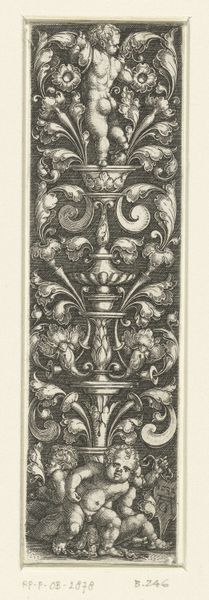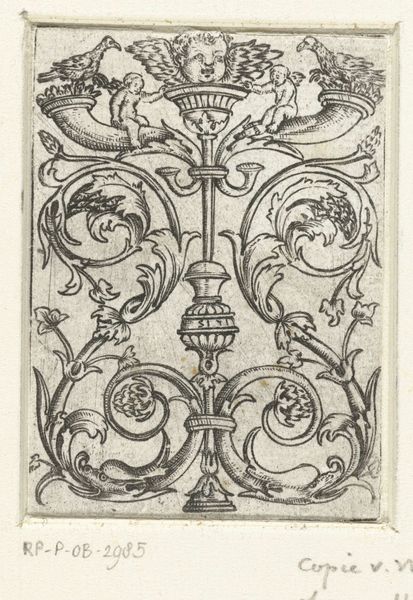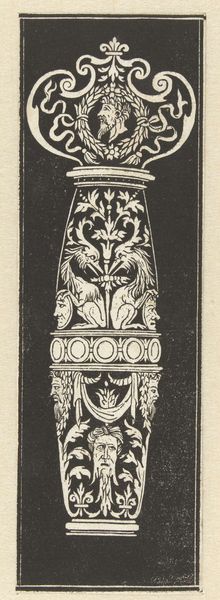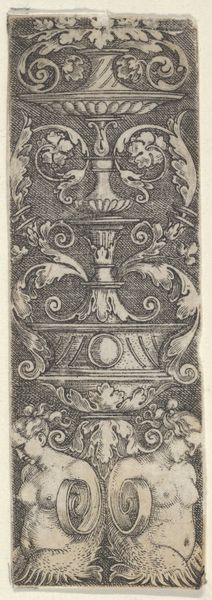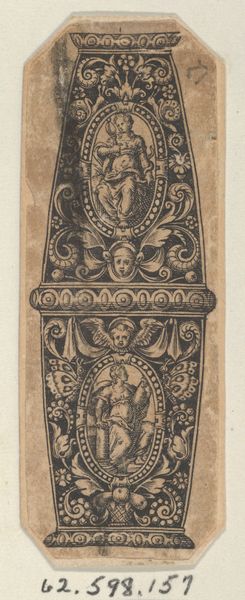
ornament, relief, engraving
#
shading
#
type repetition
#
natural stone pattern
#
rippled sketch texture
#
ornament
#
textured surface
#
textured
#
detailed texture
#
relief
#
image texture
#
mannerism
#
figuration
#
form
#
chalky texture
#
embossed
#
engraving
Dimensions: height 122 mm, width 21 mm, width 14 mm
Copyright: Rijks Museum: Open Domain
This Ornament met mascarons was produced anonymously, through a meticulous process of engraving. Look closely, and you’ll see how the artist used a tool called a burin to carve lines directly into a metal plate. Ink would have been applied to the plate, and then wiped away, remaining only in the incised lines. When paper was pressed against the plate, the image transferred, creating the print you see today. Engraving demands a high level of skill, as every line is deliberate and permanent. The crispness of the lines and the subtle gradations of tone, achieved through hatching and cross-hatching, give the ornament its distinctive graphic quality. Ornament prints like this one were not intended as art in their own right, but as sources of inspiration and models for artisans working in other media – ceramics, metalwork, woodwork. In its original context, this engraving blurred the boundaries between art and craft, playing a vital role in the circulation of design ideas and the shaping of material culture. It reminds us that what we call ‘art’ is always connected to a broader world of making, labor, and commerce.
Comments
No comments
Be the first to comment and join the conversation on the ultimate creative platform.



